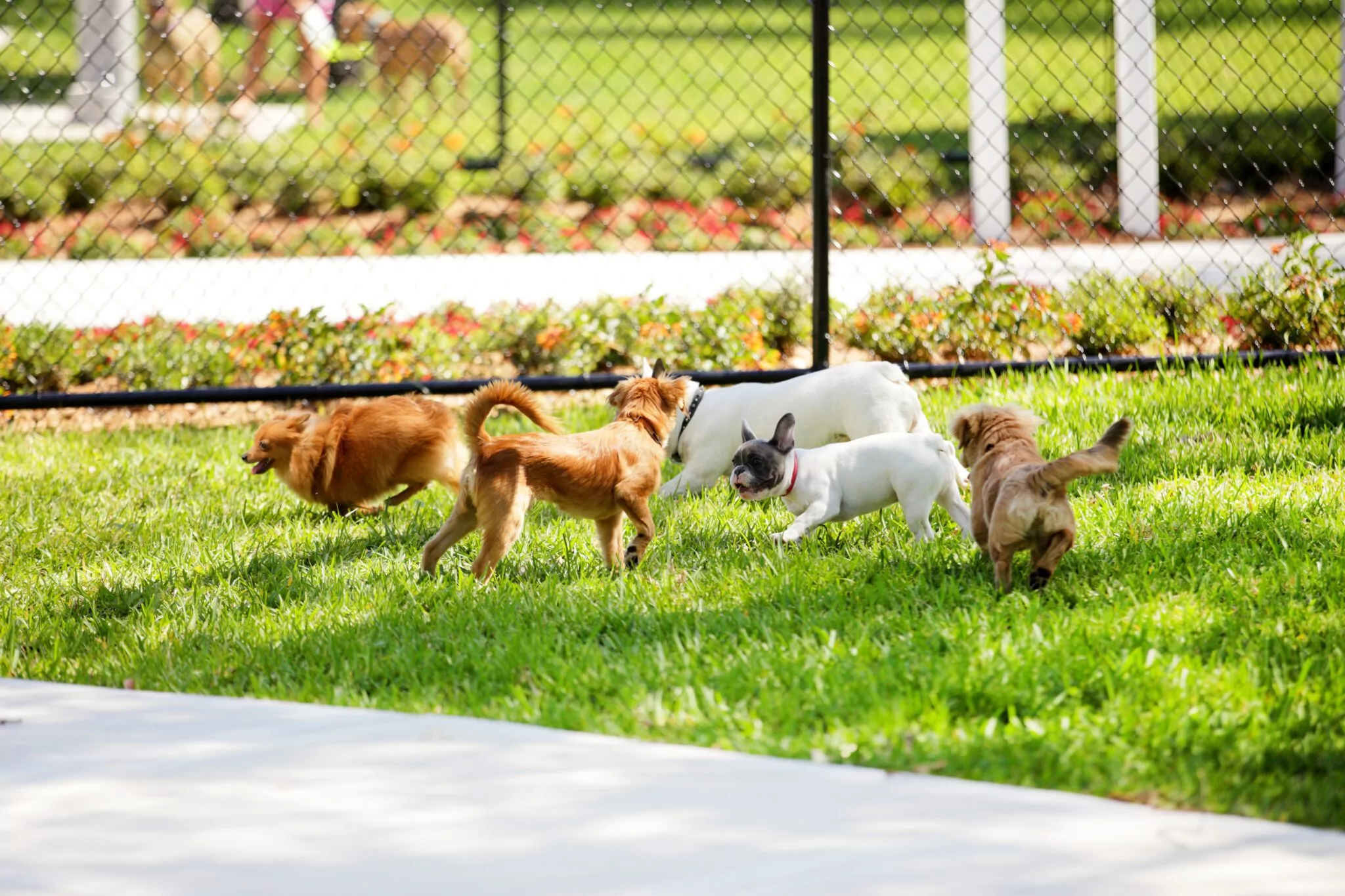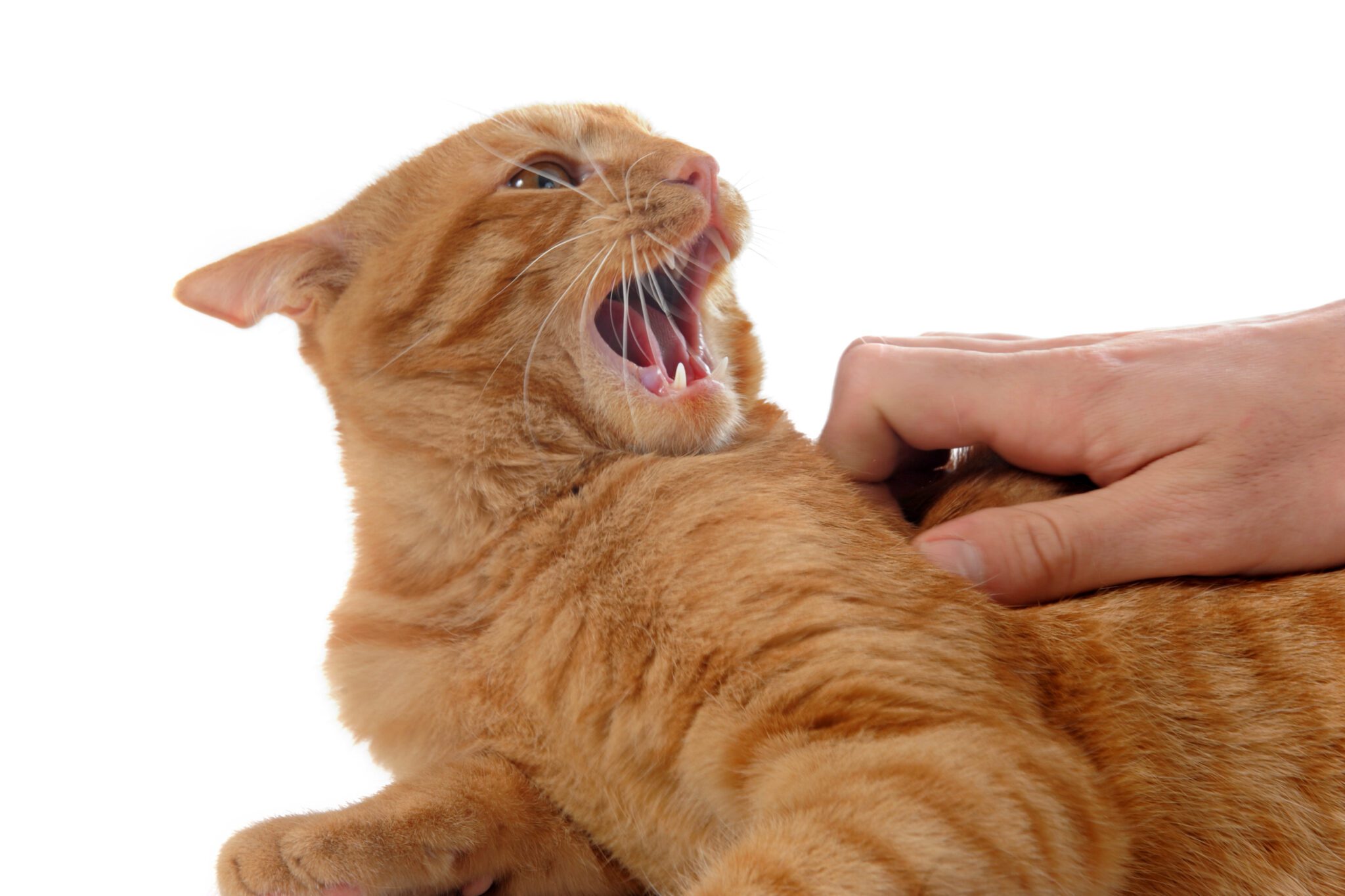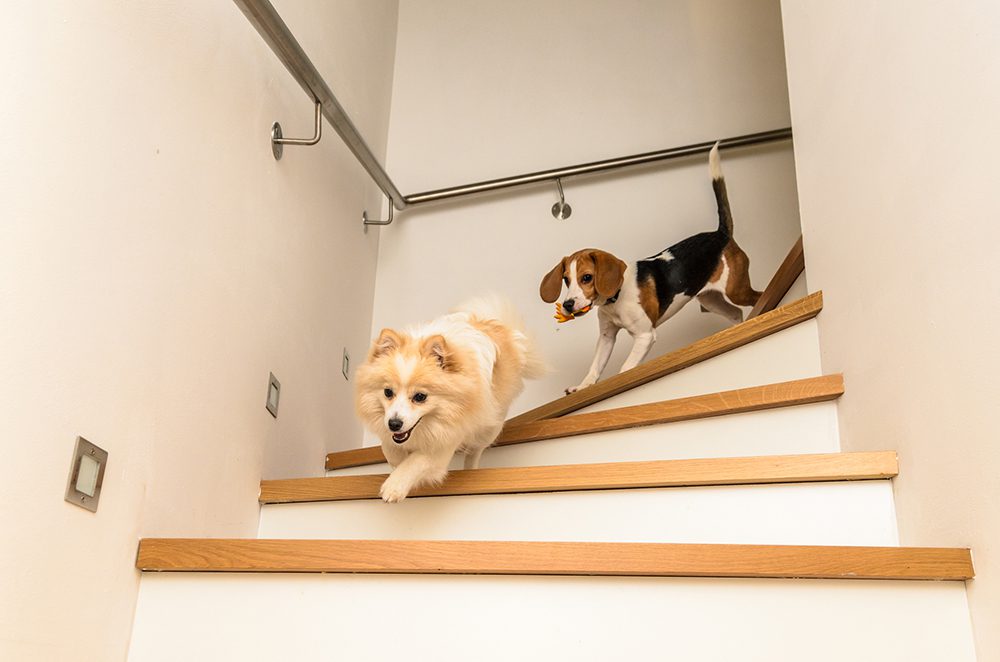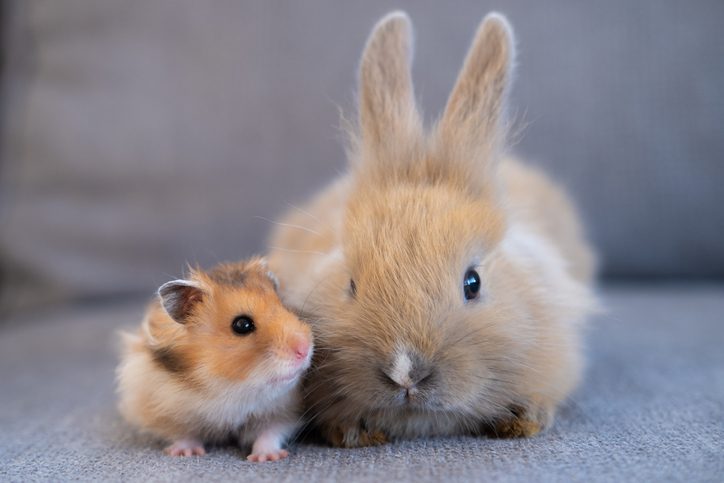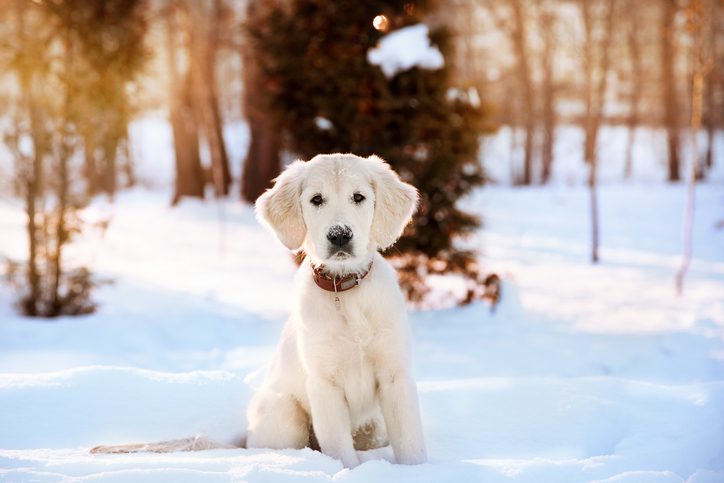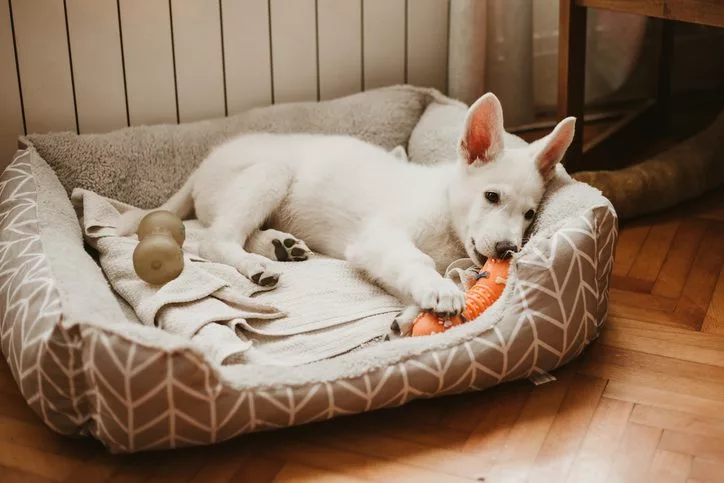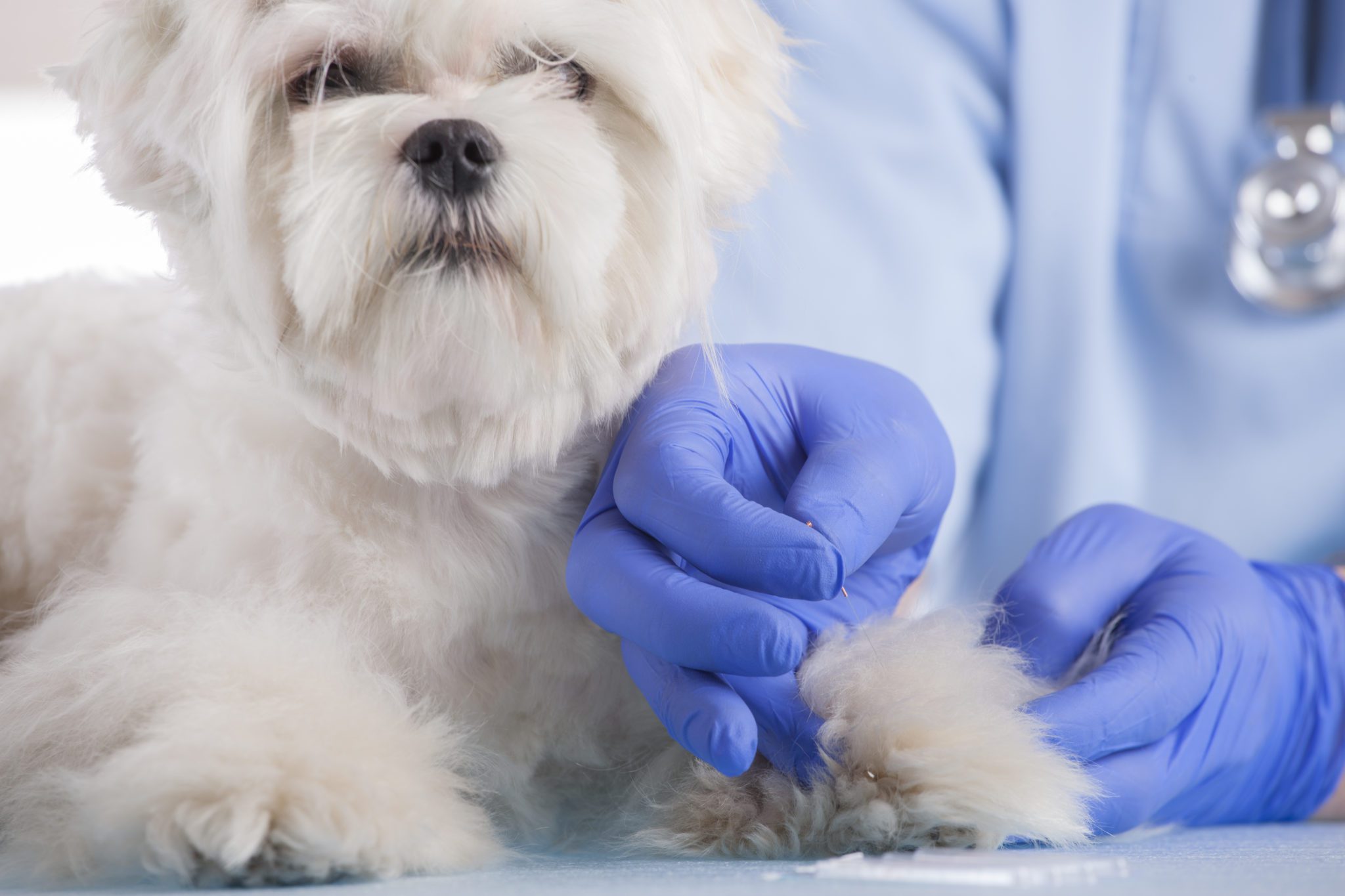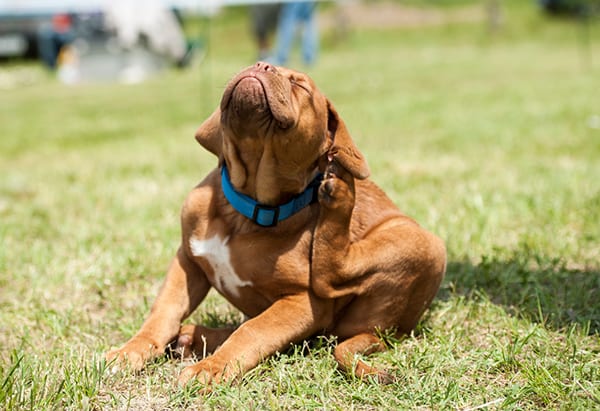
Socializing a Puppy During Quarantine in Boston, MA
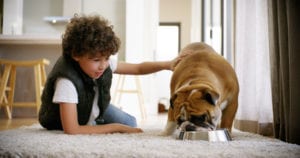
While there are challenges during this new age, it is far from impossible!
Puppy socialization during COVID-19 is just as important as ever because once these social distancing regulations begin to relax, your pup will need to be ready to take on the world!
What Is Puppy Socialization?
Puppy socialization refers to the developmental stage in a puppy’s life when they are most receptive to new stimuli and relationships.
Usually, this is between about 3-14 or 16 weeks of age, yet it doesn’t stop there. Socialization continues throughout your dog’s life as they experience new things and meet new people and pets.
Getting a jumpstart on their socialization at such a tender young age is crucial to setting them up to be a confident adult who is open to new experiences.
So, how do you socialize a puppy? It’s far more involved than simply forcing your puppy into new situations like meeting a stranger, experiencing a car ride, or being introduced to a leash.
It’s essential you pay close attention to your puppy’s body language and remove them from any situation that’s making them worried or uncomfortable. Forcing them into any situation without regard to their response can cause them to associate that situation with fear.
Signs of fear in dogs and puppies include:
- Flattened years
- Tail tucked between hind legs
- Avoiding eye contact
- Cowering
- Yawning
- Lip licking
If you notice any of these actions in your pup, take a step back and reassess their fear level. If they are back to their old self once that stimulus is removed, you can try to introduce it again at a slower pace, this time with lots of praise and treats.
If it’s a noise, play it softly at first and increase in volume as your puppy gets used to it.
It’s best to introduce all-new situations slowly and at your puppy’s own pace. The same is true for adopted adult dogs. Showering them with praise and treats helps immensely with creating positive associations.
So, how do you apply puppy socialization training in an era of social distancing? Here are some tips to help.
Introduce Your Pup to Your Household Humans
Make sure your puppy or adopted adult dog enjoys individual attention and time with each member of your household playing, feeding, grooming, and being handled. Having a variety of people that are older and younger, big and small, men and women, can all be important to your pups’ well-rounded socialization.
It’s important, too, to introduce your pup to some human wardrobe and accessory items that can change your appearance. Make sure different family members wear a hat and sunglasses, carry an umbrella, sling a backpack over their shoulder, wear a winter coat, etc.
Try to use all the accessories and different clothing styles you have available so your pup is well-acquainted with the many forms of human fashion.
Being Social While Distancing
If you don’t live with other people, or your family is small, it can be hard to get your pup accustomed to different kinds of people.
Try taking your pup on a walk when your neighbors or other people are out and about. While maintaining a safe 6-foot distance, stop passersby and have a brief conversation with them.
Make sure your puppy is aware of their presence and watch your pup’s body language to learn what her boundaries are. Using plenty of treats and praise and even sitting on the ground with her while you talk to your neighbor can help her more willingly accept unfamiliar people.
Help Your Pup Appreciate Alone Time
Being alone is just as important as being with people. Once this quarantine order is over, your pup will be forced to spend more time alone, so it’s essential to get him used to be alone now.
Place your pup in a gated area or crate for a certain amount of time every day to encourage alone time.
Provide them with a favorite toy and spend time in another room or even go for a walk yourself (while practicing distancing!). Learning to be without you is vital to helping them be productive, instead of destructive, when you’re not around.
Sound the Alarm (Quietly, At First)
Many of our household noises fall on deaf ears, but for a puppy, each sound is new and potentially alarming. The drone of the microwave, the ding of the oven timer, your phone’s ringtone, the doorbell, and so many other sounds can cause panic in your pup! Introduce them to these sounds one by one and watch their reaction.
If you notice any signs of fear, turn the sound off and try to slowly introduce your pet to it again at a softer volume or at a greater distance. Feed treats and give ecstatic praise as you slowly increase the volume to its original level.
The same kind of slow caution should be used for outdoor noises too, like busy traffic, horns honking, sirens, and even the sound of wheels from a skateboard or rollerblades.
While these are impossible to control, by staying calm and regaling your puppy with lots of praise and some treats when they come across these new and unusual sounds will help them form positive associations.
Other Environmental Stimuli to Help Socialize Your Puppy
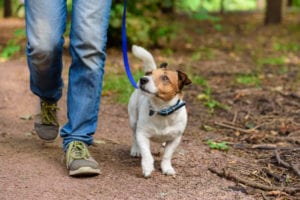
Besides sounds and social situations, your pup can come across all sorts of environmental stimuli that are totally new and have the potential for inducing fear.
Take your time when outdoors to introduce your puppy or adult dog to some of the following:
- Different textures like asphalt, grass, trails, wet and dry conditions
- People on bikes with helmets on
- Cars, motorcycles, and trucks
- Different weather situations
- And anything else you come across in your walks!
Don’t Forget Training, Too
Training your puppy or adult dog is much more than obedience commands. It opens the door to your communication with each other! Attending a puppy obedience class or talking to your veterinarian about puppy socialization and training can give you both a good foundation for effective communication.
As always, feel free to ask us at Back Bay Veterinary Clinic for advice on raising your puppy. We’re always happy to help!
Recent Posts
- « Previous
- 1
- 2
- 3
- 4
- Next »

